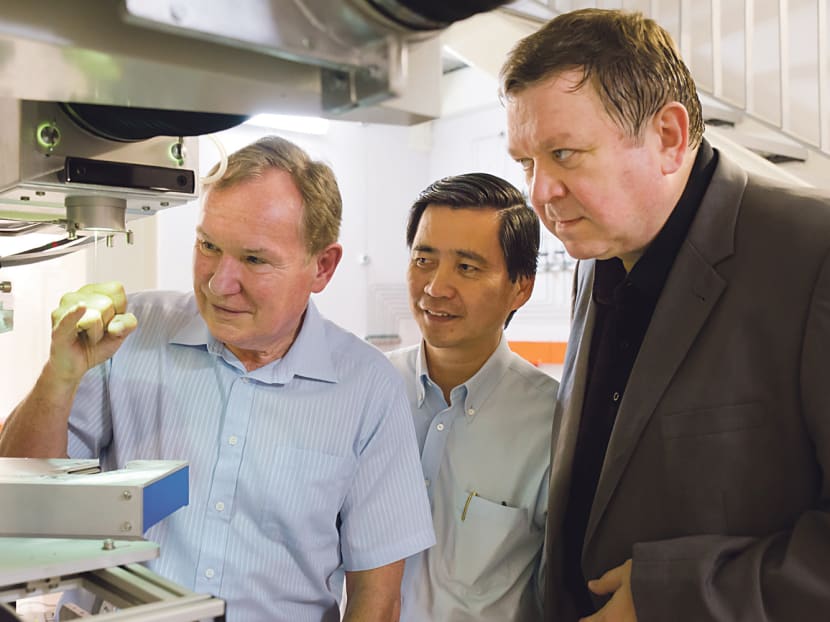NTU launches institute to research light
SINGAPORE — With the shift to an information-based economy and Singapore’s growing reliance on fibre optic cables to transmit massive amounts of data, the importance of photonics — the study of the technical applications of light — is becoming clear.

(From left) NTU professors David Payne, Tjin Swee Chuan and Nikolay Zheludev examining a newly-drawn optical fibre cable. Photo: NTU
SINGAPORE — With the shift to an information-based economy and Singapore’s growing reliance on fibre optic cables to transmit massive amounts of data, the importance of photonics — the study of the technical applications of light — is becoming clear.
And to establish the Republic as a powerhouse in photonics and optics research, Nanyang Technological University (NTU) has set up a research institute in partnership with the University of Southampton in the United Kingdom.
The Photonics Institute was officially opened yesterday, together with the last of its five research centres, the Centre for Optical Fibre Technology. The research centre houses South-east Asia’s most advanced fibre manufacturing facility, which will aid in researching experimental fibres and developing specialised fibre optic cables for industry partners.
The Photonics Institute is developing next-generation fibre optic cables that reduce information lost during long-distance data transmission and researching on how to make plasmonic — light-based — network switches instead of the conventional electrical ones, said Professor David Payne, co-director of the institute and director of the Optoelectronics Research Centre at the University of Southampton. This could lead to much faster Internet speeds with larger bandwidths.
Industry partners will also be able to approach the institute to locally develop customised fibres for specific uses in defence technology and environmental sensors for purposes such as traffic and meteorological monitoring.
Describing photonics as an enabling technology with applications that span many industry sectors, NTU president Bertil Andersson said: “One objective we have for the institute is to develop and drive innovations on a global scale, bring them to market and stay competitive in today’s knowledge-based economy.”
The institute has received more than US$100 million (S$128 million) in funding from various national agencies and industry partners, including the Agency for Science Technology and Research, DSO National Laboratories, the Economic Development Board, the Ministry of Education and the National Research Foundation.
NTU professor Tjin Swee Chuan, one of the institute’s co-directors, said with its ability to conduct advanced research in-house, the development of new fibres can be done faster and at lower costs. He added: “A key mission of the Photonics Institute is to also provide manpower training in the field of photonics and optics in Singapore.”
The Photonics Institute, together with its Southampton counterpart, will be the biggest photonics research centre in the world. The global photonics market is projected to reach US$1 trillion by 2020.






